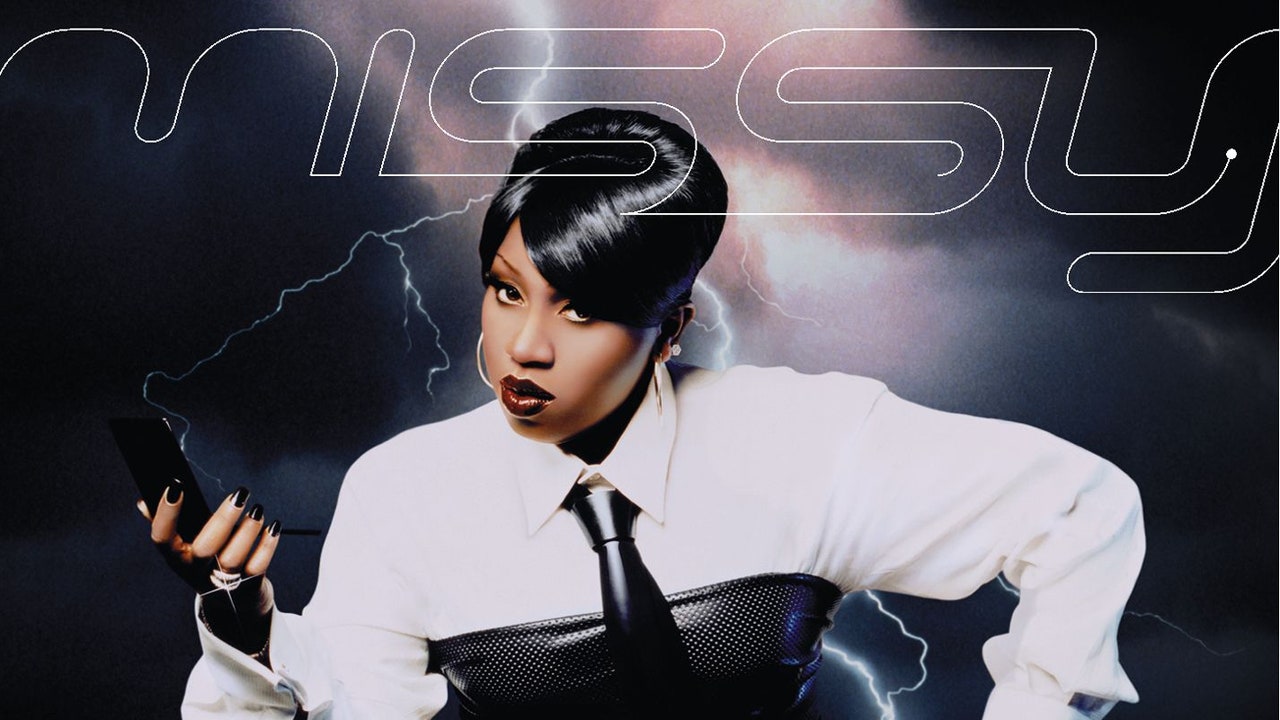“Have you ever had a dream, Neo, that you were so sure was real?” It’s Act 1 of The Matrix, and Morpheus is laying out the rules of reality for Keanu Reeves’ phlegmatic protagonist, offering him a choice. Neo slowly touches a mirror, liquid silver creeping up his arm, engulfing him, ripping him from the simulated life he experienced as reality and into the “real” world—an AI-controlled, post-apocalyptic Earth. The Wachowskis’ universe of brain-link tech and teleporting phone booths warped everybody’s perceptions of reality back in 1999. Now, imagine Missy Elliott watching it for the first time. It was a mindfuck, even for an artist with a similarly twisted, futuristic approach to her craft. Just like that, she’d found a framework for her second album.
By that point, Missy had proven herself a hip-hop anomaly in a rapidly digitizing world. Early Y2K radio was largely iterative of the envelope-pushing sound she and Timbaland created on her 1997 debut, Supa Dupa Fly. That album, along with the staccato beat-box rhythms on Aaliyah’s One in a Million, made the Virginia duo stand out in a sea of samplers, establishing them as the industry’s sci-fi oddballs crafting out-of-this-world, pop-savvy tracks. Pop music suddenly sounded like a dial-up internet connection on the fritz, with R&B acts like Ginuwine, Total, SWV, and 702 serving as smooth ciphers for Missy and Timbaland’s wildest ideas. In the wake of other producers cribbing their style, Da Real World was a chance for Missy to halt the assembly line and build her mythos, drawing directly from The Matrix. “I am Morpheus,” a screwed voice (presumably Timbaland) slurs on the album’s intro to remind people (as if they needed to) that he and Missy could constantly shift reality.
Though darker in tone and less whimsical than Supa Dupa Fly, her second album is driven by the same fluid melodies and myriad flows, with many of the beats sourced from sounds Timbaland collected after a trip to Japan. The Matrix framing is mostly smoke and mirrors here, peppered lightly in interludes throughout. But the movie’s key premise—the idea of transcending binaries—likely resonated with Missy and aligns with this project’s theme of women breaking free from reductive labels. In interviews for Da Real World, Missy often highlighted a double standard that feels cliché today: aggressive men are seen as bosses, while women of the same ilk are dismissed as bitches or divas. The self-proclaimed shy girl also spoke about tapping into “bitch mode” herself to get things done. Da Real World is her own personal rebellion, her egalitarian playground where she can flex alongside her male peers (Big Boi, Eminem, Redman, Juvenile, BG), claiming equity in the game while leaving room for women in her orbit (Lil Mo, Aaliyah, Lil’ Kim, Da Brat, Lady Saw, Nicole Wray) to air their frustrations over a Timbaland beat.
